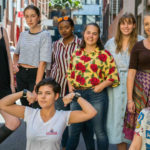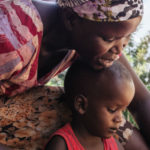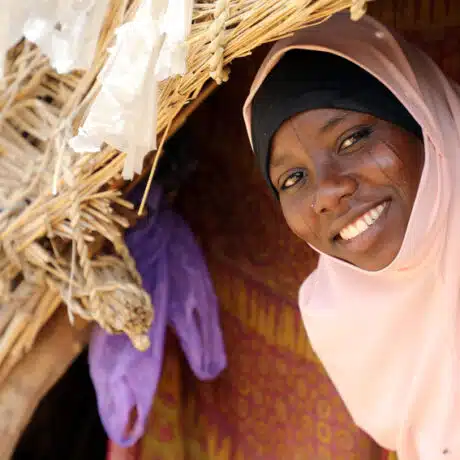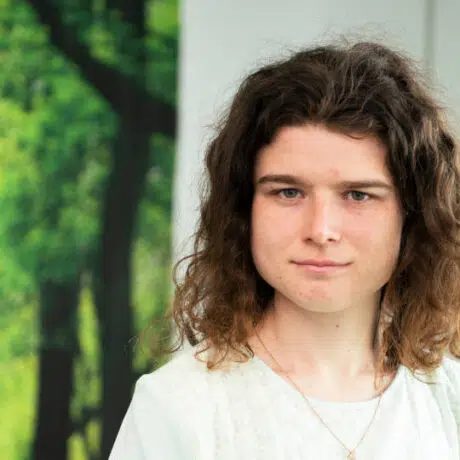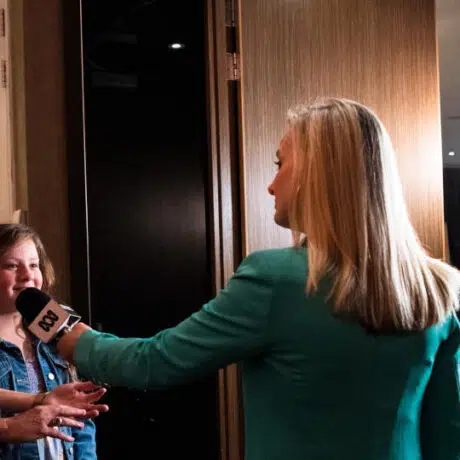News and Stories - Girls Rights - 24 April 2018
Girls in ICT Day: Using tech to transform their cities
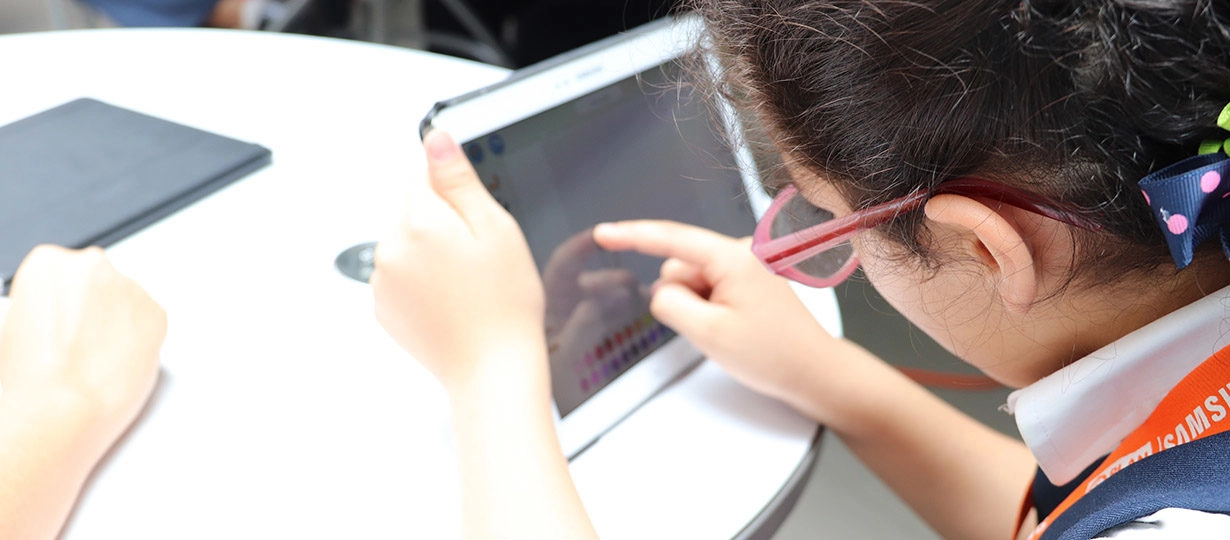
Girls are using tech to transform their cities
It often feels like girls bear the brunt of the pitfalls of our rapidly evolving online world. Harassment, pressure to look a certain way, sexting and revenge porn are just some of the challenges and terrors that seem to disproportionately affect young women and girls.
Yet girls are not only seizing the power of tech, they’re harnessing it to help transform offline spaces where they too feel like they are disproportionately excluded and made to feel unsafe.
Girls in ICT Day highlights the underrepresentation of girls in tech, and the importance of getting girls excited about and involved in ICT. We wanted to take this chance to introduce you to girls across the planet who are using tech to tell their own stories and shape their cities.
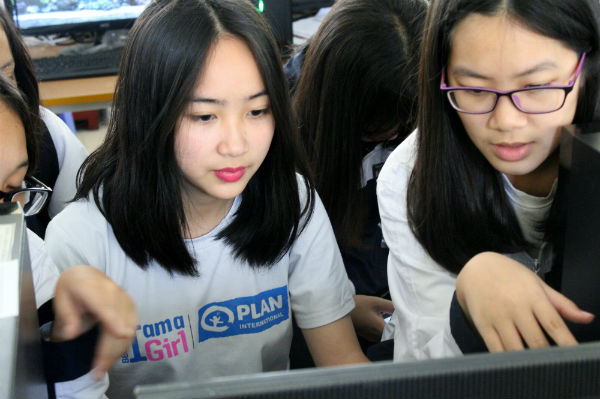
Hanoi, using Minecraft to build safer cities
If you’ve got kids, there’s a chance they’re already immersed in the world of Minecraft, a computer game where you can build things out of blocks, including entire cities.
In Vietnam’s capital city Hanoi, girls are using a Minecraft to create a version of their city where they feel safe and included.
“I’ve been able to contribute to building a community that is more beautiful, safer and friendlier for myself and for girls in general – and for the community as a whole.” – Anh, 15
Young women in Hanoi told our team in Vietnam about the range of dangers they face in their community. So Plan International and UN-Habitat joined forces to bring together our Safer Cities for Girls program and the popular game.
The girls have taken their designs to decision makers who have already committed to suggestions like including installing more street lights and building a fence around a deep canal that runs through the community.
The girls have included simple but crucial features in their design of a safe environment including installing street lights, road signs, bins and fences. They’ve also included free emergency phones, shelters for women, girls and homeless people, a café for women and girls, flowers, plants, benches, sports fields and tree houses to make the public space more enjoyable for all!
Lusaka, reframing Zambia’s slums
Lusaka is one of the fastest growing cities in Africa. More children and young people than ever before are growing up in slums without access to clean drinking water, sanitation or the ability to influence their own lives.
Plan International’s partner, Africa Directions operates youth centres in the slums. Here young people have refuge from the dangers life in slums can bring. They receive training on sexual health and reproductive rights, how to develop business opportunities and how to make a difference in their local community.
Through Reframe Lukasa, a partnership between Plan International, Africa Directions and Kilimanjaro Film Institute Zambia, young people are also learning how to document the challenges and injustices in the area where they live, using tablets to take pictures and films.
“I actually really like the area, but it is not safe to live there. It is particularly challenging being a girl when you live in slums.” Memory uses the program to take photos of the issues in the slums like large mounds of rubbish, the lack of safe places for kids to play and the dilapidated health services.
“The centre gives me the opportunity to start a good life. I volunteer to care for the young children who come here. And I am part of the project where we go out into the community and make videos and take pictures. We show them to people so that they will focus on the problems.”
But it’s not just the problem these young people are highlighting. The images show the community coming together though concerts, sport and workshops to show how a passionate group of young people can drive real change.
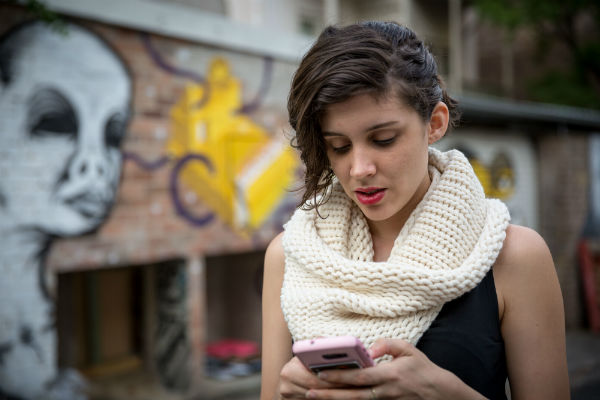
Sydney, Delhi, Lima, Kampala, Madrid, Free to Be in the city
In 2016 Plan International Australia launched Free to Be in the city of Melbourne, using the Safer Cities model that has been so successful overseas to tackle the fact that girls here in Australia often feel just as unsafe in public spaces as their peers overseas.
The program was a huge success, with thousands of stories coming through from young women using the digital map to tell their stories in the city. Decision makers listened, and now we’re going global.
We’re taking the platform back to our Safer Cities programs across the globe to collect data and stories from five key cities – New Delhi, Kampala, Lima, and Madrid.
The mapping tool was co-designed by young women, for young women with workshops running across the five keys cities to identify what should be included.
Already, we’ve seen thousands of spots added in Sydney, highlighting where girls do and don’t feel safe. The mapping tool has caught the attention of media, and even driven debate on Twitter which saw young women drawing attention to just how common sexual assault is on public transport.
“That feeling of being unsafe or unsure and holding your keys in your hand or having your phone ready to dial … catcalling, staring and even in peak hour on trains, groping or touching. Girls are really taught and socialised to think that harassment is just to be expected and as a woman it is something you’ve just got to put up with, but it isn’t.
“This map tells people ‘your story is valid and this shouldn’t have happened to you’.” Edie, 19, Sydney in Buzzfeed News Australia.
We hope that by highlighting the stories of young women we can work with leaders to transform cities into spaces where girls feel safe and like they belong.
The map will be collecting data up until the end of May, so if you have a young woman in your life who lives in Sydney this is a chance for her to share her story and shape her city. Share the Free to Be map and help young women create safer, more inclusive spaces for all.
We’re bringing together a community that is raising global citizens by sharing knowledge and experiences and empowering young people to reach their full potential. If you’d like to be a part of it, sign up here.

